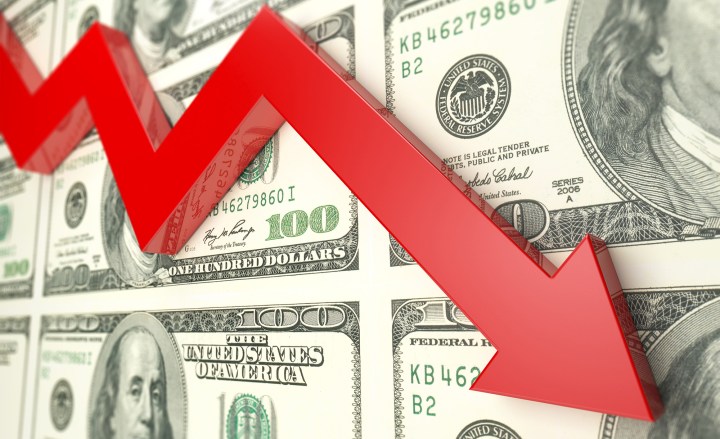ECONOMIC OUTLOOK OP-ED
All bets are off while there’s no consensus on the final arbiter of a US recession

US growth fell 0.9% in the second quarter, satisfying the technical definition of a recession. However, policymakers don’t subscribe to this definition, instead preferring a broader-based measure.
Last year’s heated debate was whether inflation was likely to prove transitory or become a significant problem for the world economy. Those who were on the side of the latter turned out to be right.
This year’s big economic bet is on whether recession is looming in the developed world – or already here in the case of the US and UK – or whether recession is not on the cards. Again, there are economists who hold adamant views on either side of the debate.
Those steadfast in their view that we can expect a painful recession in the US include former US Treasury Secretary Larry Summers, who says expectations of a soft landing “represent a kind of triumph of hope over experience”, and US economist Nouriel Roubini, who asserts that calls for a shallow recession are “delusional”.
The stalwarts who don’t foresee a recession include US Treasury Secretary Janet Yellen, who acknowledges growth is slowing but says “this is not an economy that’s in recession”, and US Federal Reserve Chair Jerome Powell, who stated this week that he doesn’t think the US is currently in recession.
Mainstream consensus thinking in the private sector is that a recession is the likely fallout of the central banks’ aggressive rate hiking cycle. But many believe it will be a short and shallow recession.
The regions most at risk of recessionary conditions this year are the US and UK, where recession may already be in play, and Europe, where recession is seen as a foregone conclusion if Russia turns off the gas supply taps completely.
The latest IMF World Economic Outlook highlights the sharp deterioration in the global economic outlook since its April meeting, with 2023’s economic growth now forecast to be 70 basis points lower than previously expected. But its base case doesn’t factor in a recession, with the organisation foreseeing “stalling growth in the world’s three largest economies – the United States, China and the Eurozone – with important consequences for the global outlook”.
Against this gloomy global backdrop, South Africa’s economic outlook looks relatively positive, with the IMF raising its forecast of this year’s growth by 40 basis points, notwithstanding power supply challenges and their impact on the economy.
Though the domestic economy is not at risk of recession in the foreseeable future, the full extent of the damage wrought by rolling blackouts remains to be seen, and a recession in the developed economies would have severe ramifications for the rest of the world, including South Africa.
In the battle to see who was right on the inflation front, it was the soothsayers who warned that inflation was set to become a massive problem who reigned supreme. But who is most likely to come out on the right side of history this time around?
It will be a far tougher call, because there’s no universal agreement on what defines a recession. Those who are certain that a recession is on the horizon, if not already here, are basing their view on the technical definition of recession – namely, two quarters of negative growth. Atlanta Fed’s latest “nowcast” estimates that second quarter US real GDP growth was -1.2%, signalling that the US has already fallen into recession, based on this measure.
The first print of Q2 GDP released this week met the requirements of a technical recession, falling a worse than expected 0.9%. UBS Global Wealth Management’s chief economist says GDP will be revised a lot in the coming years. He comments: “The Atlanta Fed nowcast suggests a large drop. Historically, economists have been more accurate than the nowcast.”
However, the “no recession” advocates, like Yellen and Powell, see the NBER’s Business Cycle Dating Committee as the final arbiter of recession. The committee bases its recession call on a more extensive range of economic indicators, and they will only call a recession if they have seen “a significant decline” in their monitor of activity broadly spread across the economy.
According to a White House blog, the variables the committee typically tracks include real personal income minus government transfers, employment, various forms of real consumer spending and industrial production.
Oxford Economist Lead US Economist Lydia Boussour doesn’t believe the two quarters of negative growth signal the US has entered a recession, because the labour market remains strong – an argument put forward by both Yellen and Powell. But she views the latest figure as confirmation that the economy is “rapidly downshifting amid stubbornly high inflation and aggressive Fed tightening”.
Boussour shares her expectations for the US economy: “While we continue to see a pathway to a softish landing, it’s admittedly narrowing. We anticipate only a modest rebound in the second half and see real GDP growing 1.9% this year and 1.1% next year.”
No matter how we define recession, there’s no doubt that there has been a significant and swift deterioration in the global economic environment, with risks – as the IMF warns – “significantly tilted to the downside”.
The key risks it believes could result in global growth falling to 2.6% versus its current estimate of 3.2% this year and 2% in 2023 versus 2.9% – a pace experienced just five times since 1970 – include:
- The much-anticipated sudden stop in European gas flows from Russia.
- Stubbornly high inflation.
- Debt distress in emerging market and developing economies.
- Ongoing outbreaks of Covid-19 in China.
- Widespread food insecurity and social unrest.
- Geopolitical fragmentation.
None of these risks is far-fetched and, a year down the line, it’s not hard to imagine the debate moving on to an issue that is as divisive as the transitory inflation and recession debates.
Gone are the days when it was hard to find an economist who had a view that differed markedly to the consensus. BM/DM


















 Become an Insider
Become an Insider
Comments - Please login in order to comment.